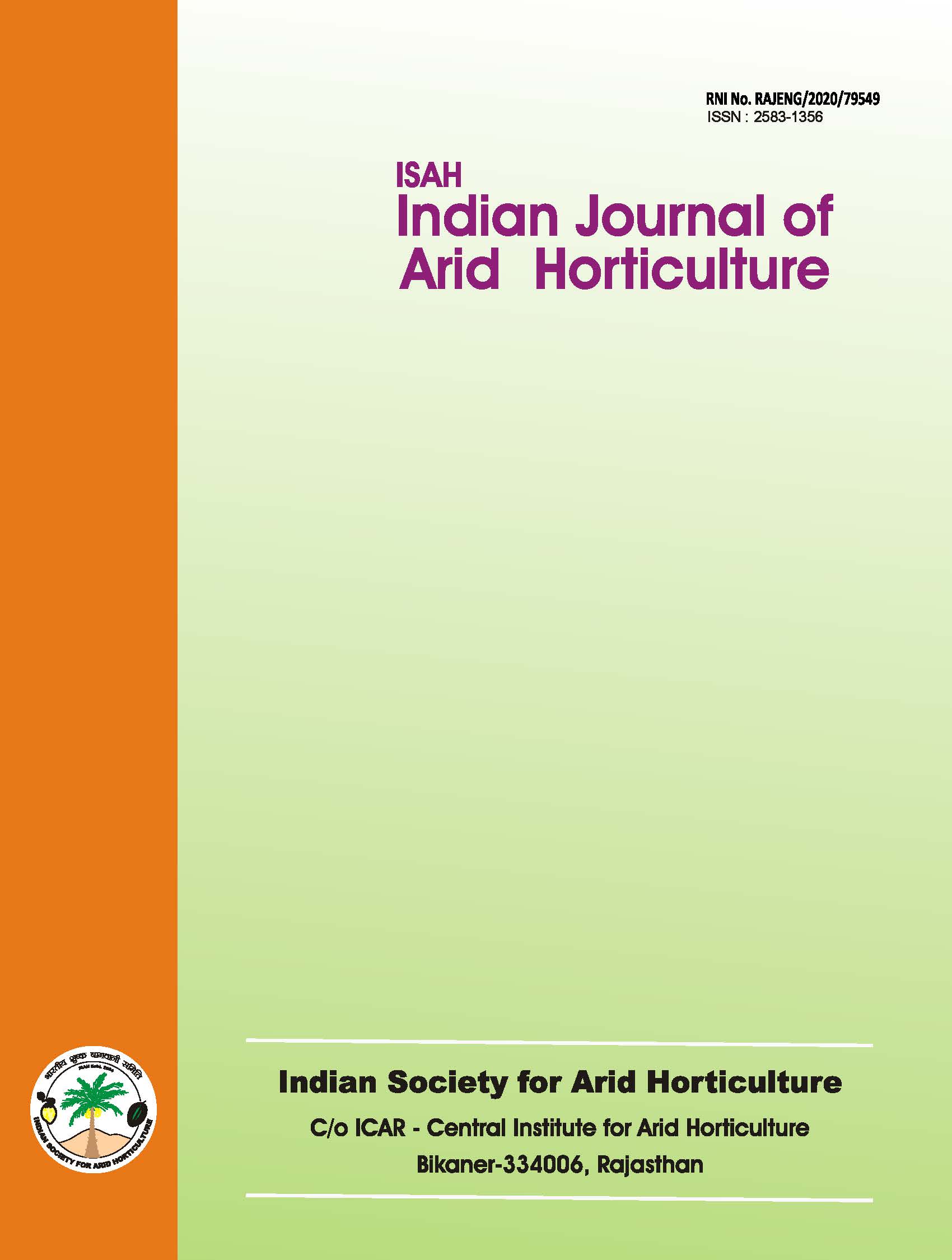Effect of different spacing and nitrogen levels on growth, yield, quality and monetary returns of cauliflower (Brassica oleracea var. botrytis L.) under North Gujarat condition.
Keywords:
curd yield, Diameter, nitrogenAbstract
Cauliflower (Brassica oleraceavar. botrytis L.) is one of the most popular vegetable crops among the cole crops. Cauliflower was introduced in India from London by Dr. Jenson in 1822 and in such a short period of its introduction, In India, cauliflower is cultivated in an area about 347 lakh ha with an annual production of about 6569 thousand MT (Anon., 2010). Advance technology for cauliflowers cultivation is use of hybrid varieties and drip irrigation. In the plains, cauliflowers are available from September to May. In Gujarat, it is cultivated in 19,815 ha with a production of 3,56,747 MT (Anon., 2009-10) and productivity of 18 -1 MT ha . There is great potential for increasing the productivity per unit area by use of optimum plant spacing and cultural practices in cauliflower. Spacing and plant population per unit area plays an important role for growth and development of the crop. Higher plant population can be achieved by reducing the distance between rows and plants. The yield of cauliflower is directly influenced with proper manuring and fertilization. Therefore, in recent thus much emphasis has been given for the use of major nutrients (N, P, and K). Nitrogen is an essential nutrient required by the plant for its growth, development and reproduction. An adequate supply of nitrogen is associated with vigorous vegetative growth. Nitrogen is a constituent of protein, nucleic acid and chlorophyll etc. It is helpful in large size compact curd development. Hence, the present study was undertaken to find out the Hence, the present study was undertaken to find out the “effect of different spacings and nitrogen levels on growth and yield cauliflower (Brassica oleracea var. botrytis L.) under North Gujarat conditions” rabi 2010-11.
Downloads
References
Anonymous. (2009-10). District-wise area, production, and yield of important vegetable crops in Gujarat state. Krishi Bhawan, Sector 10-A, Gandhinagar.
Anonymous. (2010). Area and production of vegetables. NHB Database 2010.
Ducsay, L., Varga, L., & Ryant, P. (2004). Effect of nitrogen application on the uptake of selected microelements and the content of vitamin C in Brassica pekinensis. Acta Universitatis Agriculturae et Silviculturae Mendelianae Brunensis, 52(2), 115-119.
Mal, K., Yadav, R.L., & Paliwal, R. (2005). Effect of chemical weed control and nitrogen levels in cauliflower. Indian Journal of Horticulture, 62(3), 257-259.
Singh, A.K. (2004). Effect of nitrogen and phosphorus on growth and curd yield of cauliflower var. Snowball-16 under the cold arid region of Ladakh. Haryana Journal of Horticultural Sciences, 33(1&2), 127-129.

